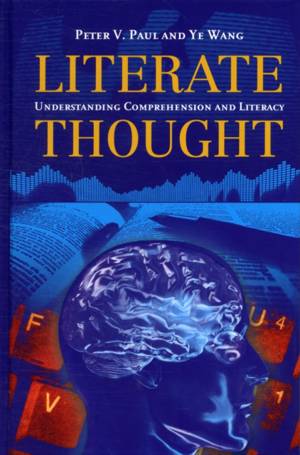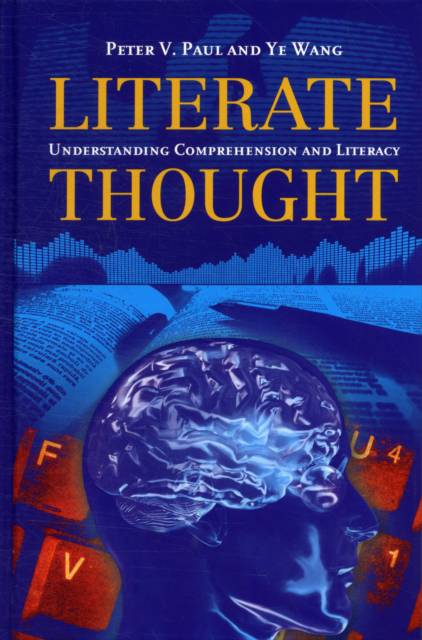
Door een staking bij bpost kan je online bestelling op dit moment iets langer onderweg zijn dan voorzien. Dringend iets nodig? Onze winkels ontvangen jou met open armen!
- Afhalen na 1 uur in een winkel met voorraad
- Gratis thuislevering in België vanaf € 30
- Ruim aanbod met 7 miljoen producten
Door een staking bij bpost kan je online bestelling op dit moment iets langer onderweg zijn dan voorzien. Dringend iets nodig? Onze winkels ontvangen jou met open armen!
- Afhalen na 1 uur in een winkel met voorraad
- Gratis thuislevering in België vanaf € 30
- Ruim aanbod met 7 miljoen producten
Zoeken
€ 144,95
+ 289 punten
Omschrijving
Literate Thought: Understanding Comprehension and Literacy introduces students and professionals to the multifaceted concept of literate thought and related complex concepts such as language, literacy, cognition, and comprehension, as well as other areas such as the new and multiple literacies, psychological or disciplinary models, and critico-creative thinking. Literate Thought: Understanding Comprehension and Literacy details the various aspects of a model or theory of literate thought with examples to enhance understanding of the concept. This incisive text provides an overview of literate thought and emphasizes the necessity to develop literate thought in individuals from a multiple perspective, not just from print literacy only. With alternative and additional options for developing literate thought, the possibility to improve levels of thinking in everyone, including children with disabilities and those learning English as a second language, may be increased. This ground-breaking text provides meaningful application in practice for speech-language pathology, special education, psychology, and reading and literacy professionals.
Specificaties
Betrokkenen
- Auteur(s):
- Uitgeverij:
Inhoud
- Aantal bladzijden:
- 340
- Taal:
- Engels
Eigenschappen
- Productcode (EAN):
- 9780763778521
- Verschijningsdatum:
- 23/06/2011
- Uitvoering:
- Paperback
- Formaat:
- Trade paperback (VS)
- Afmetingen:
- 152 mm x 229 mm
- Gewicht:
- 485 g

Alleen bij Standaard Boekhandel
+ 289 punten op je klantenkaart van Standaard Boekhandel
Beoordelingen
We publiceren alleen reviews die voldoen aan de voorwaarden voor reviews. Bekijk onze voorwaarden voor reviews.











